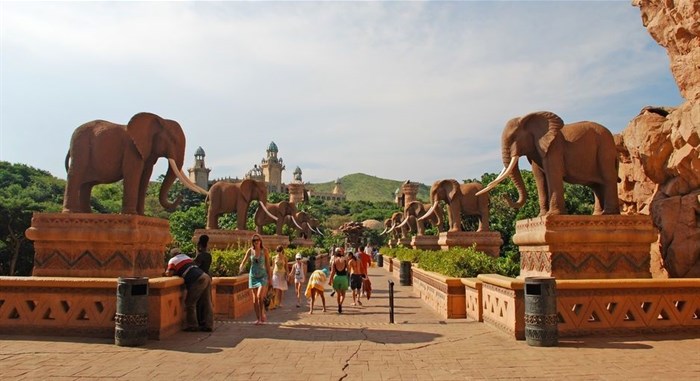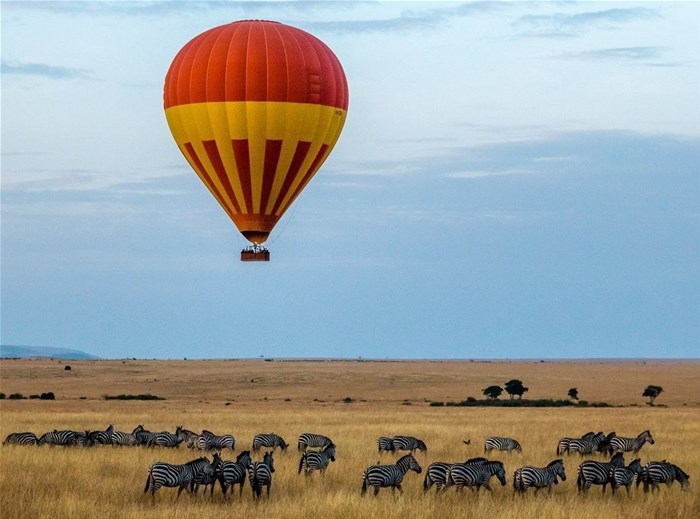Tourism has become important to the growth of any economy, which is why so many countries are now reviewing and developing their tourism policies.
As these policies develop, we see positive growth across the board in prospective business and job creation. From hospitality management to game reserve tour guides, the tourism industry has been making positive strides toward building brighter futures, not only for the youth but for the economy too, establishing itself as a sector influential to the continent.
Here, Tim Smith, HVS managing director comments on how tourism has made meaningful contributions to the SA and African economy, and how industry professionals can maximise further on this growing sector…
What has been the impact of tourism on the job market in Africa?
According to Stats SA’s 2016 report, the tourism industry directly contributed 2.9% to South Africa’s GDP, creating 40,000 net new job between 2012 and 2016, employing more than utilities and mining combined, with one in 23 people employed in South Africa working directly in tourism.
In which ways has it made a meaningful contribution?
The tourism industry needs skilled and unskilled labour, maintenance, housekeeping, to management and accountants. This means there are plenty of opportunities for everyone. Some of the best general managers have started at the bottom and worked their way up; so irrespective of your background, if you have the aptitude you can go as high as you want.
Guests are always looking for an authentic experience so using local suppliers with local produce and goods, etc. will add to the local economy and also the guests experience. The training offered is fully transferable to other careers and can take employees anywhere in the world; further enhancing their life experiences.
Are there any ways that the tourism industry can improve on this? If so, how?
Starting at university, we need to make sure the skills gained by students are what is required in the market place. Colleges and universities need to work with industry partners to ensure their graduates are employable.
We need to celebrate a career in tourism, so we attract and retain the best people. We should not just focus on the long hours and low pay, but look at ways to improve the attractiveness of the career for young people. Employers should speak to their employees and find out what they want. With skilful rostering you can reduce the shift times, the Peninsula Hotel is particularly good at this.
How can we celebrate tourism and hospitality employees in Africa? What can we implement to further recognise their contribution?
At THINC Africa we are celebrating the hospitality students with Student of the Year, with generous prizes from Ecole hôtelière de Lausanne (EHL). It is important that we all take the opportunity to celebrate the best. Another initiative we have implemented this year is to celebrate employees who deliver truly exceptional service and experiences for guests. For example there are doormen in Durban that provide such service that guests come back just to see them.
Using experienced employees to speak in schools and to celebrate the industry would encourage youngsters to consider tourism as a career rather just a short-term job.
Do you think that travel and tourism brands could drive employment through industry partnerships? If so, how?
Work experience, internships and job sharing are all ways employment can be driven through partnerships. We need to attract people from other industries to all the benefits of working in tourism; the best way to do that is for them to experience the industry.
How can we invite the international market to be a part of the tourism industry in SA and Africa – in order for them to take the skills and knowledge abroad?
Running Indabas and conferences for international investors to visit the countries and experience the local tourism for themselves is a good start. Many of the international brands are keen to expand across South Africa and Africa generally, but to do so they need local partners who know and understand the local business culture.
The availability of work permits, visas, access and the ability to transfer money across borders easily and cheaply are all pre-requisites for international investment in tourism.
What do you think the tourism industry could do in the next three to five years that could really make a difference to SA’s economy – and how can it help drive employment?
Two things, sort out visas for visitors and also work permits so that everyone knows what is required and how long it takes to get them.
Guests are always looking for an authentic experience so using local suppliers with local produce and goods, etc. will add to the local economy and also the guests experience.
There should be a focus on tourism for Africans by creating facilities and experiences at a price point and with the local people in mind. Then to do everything possible to make the local guest feel relaxed and at home. This starts with the menus, but runs much deeper. How many of us don’t feel comfortable in a luxury hotel, because we don’t know how to act? Many people feel the same in hotels generally. Develop a brand and experience with Africans and not only Europeans and Americans in mind.How can the industry change negative perceptions – if any – surrounding SA and Africa as a destination – and one to work in?
Safety and security is the big issue. For guests, the reality is very different to the stories and statistics, providing you are sensible, as you would be anywhere in the world the chances of a nasty situation occurring are no greater than many other global cities.
Unfortunately for staff it can be different, as they often live in less wealthy areas. Employers often, therefore, need to provide transport or staff accommodation.
Getting the message correct and changing the narrative is also important.
For example, the whole of Cape Town has achieved an incredible amount in a short space of time in water savings, but tourism has been affected. Now we need to change the narrative and campaign that Cape Town is open for business, we live in a water scarce area so take sensible precautions, the vast majority of which will not even be noticed during your stay. Cape Town may be the latest, but won’t be the last global city to suffer.
For more information and updates on THINC Africa, check in on our THINC Africa special section.




























